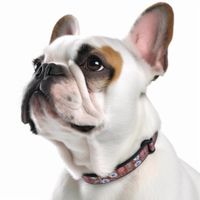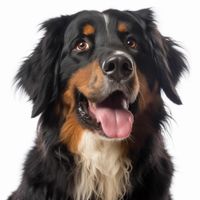French Bulldog - vs - Portuguese Water Dog - vs - Bernese Mountain Dog
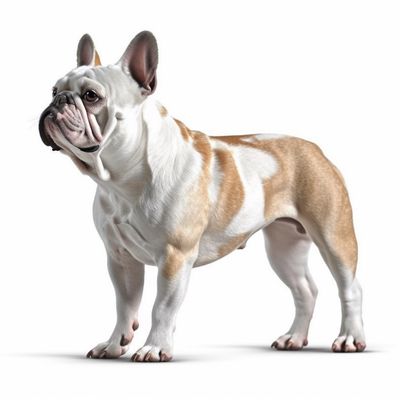
French Bulldogs are small-sized dogs, weighing 16-28 lbs, with a height of 11-12 inches.
French Bulldogs are known for their low energy levels and enjoy a more relaxed lifestyle.
French Bulldogs require minimal exercise, with short daily walks and indoor playtime being sufficient.
French Bulldogs are moderately easy to train, but they can be stubborn at times, so patience and consistency are key.
French Bulldogs are of average intelligence and can learn new commands with consistent training.
French Bulldogs are highly adaptable and do well in various living situations, including apartments and houses.
French Bulldogs are generally good with kids, being patient and affectionate with them.
French Bulldogs can get along well with other pets when properly socialized.
French Bulldogs can tolerate some cold weather but should be protected from extreme cold with appropriate clothing and shelter.
French Bulldogs are not well-suited for hot climates due to their short snouts, making it difficult for them to regulate their body temperature.
French Bulldogs have minimal shedding due to their short, smooth coats.
French Bulldogs require minimal grooming, with occasional brushing to remove loose hair.
French Bulldogs bark occasionally, usually only when necessary or provoked.
French Bulldogs have breed-specific health issues, requiring regular veterinary checkups, preventative care, and potential treatments.
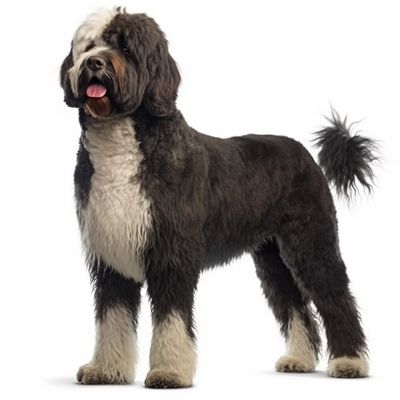
Portuguese Water Dogs are medium-sized dogs, weighing 35-60 lbs, with a height of 17-23 inches.
Portuguese Water Dogs have a high energy level, and they enjoy participating in various activities and sports.
Portuguese Water Dogs need regular exercise, including daily walks, swimming, and opportunities to participate in dog sports.
Portuguese Water Dogs are intelligent and eager to please, making them relatively easy to train with consistent, positive reinforcement.
Portuguese Water Dogs are highly intelligent dogs and can excel in various dog sports and activities, especially those involving water.
Portuguese Water Dogs can adapt well to different living situations, including apartments and larger homes, as long as their exercise needs are met.
Portuguese Water Dogs can be good with children, being playful and affectionate. However, supervision and proper handling are important.
Portuguese Water Dogs can get along well with other pets, especially when raised together.
Portuguese Water Dogs can tolerate colder temperatures, thanks to their thick, water-resistant coats.
Portuguese Water Dogs can tolerate hot climates but need to be monitored for signs of overheating during exercise.
Portuguese Water Dogs have low-shedding coats, making grooming relatively easy.
Portuguese Water Dogs require regular grooming, including brushing and trimming to keep their coats clean and healthy.
Portuguese Water Dogs are generally healthy, but regular veterinary checkups and preventative care are still necessary.
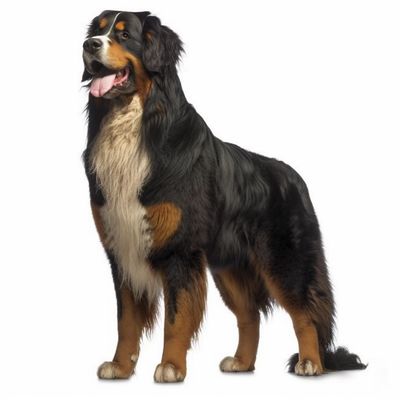
Bernese Mountain Dogs are large and sturdy, weighing 70-115 lbs and standing 23-28 inches tall.
Bernese Mountain Dogs have a moderate energy level, requiring regular exercise and playtime.
Daily exercise, like walks or playtime, keeps Bernese Mountain Dogs happy and helps prevent boredom.
Bernese Mountain Dogs are intelligent and eager to please, but can be stubborn at times.
Bernese Mountain Dogs are smart and enjoy learning new commands and problem-solving activities.
Bernese Mountain Dogs prefer cooler climates and need space, making them better suited for larger homes.
Gentle and patient, Bernese Mountain Dogs are wonderful playmates and companions for children.
Friendly and sociable, Bernese Mountain Dogs typically get along well with other dogs and pets.
Bernese Mountain Dogs are well-suited for cold weather due to their thick, double-layered coat.
Bernese Mountain Dogs struggle in hot climates and require extra care, like shade, water, and limited exercise.
Bernese Mountain Dogs shed seasonally and require regular brushing to manage their coat.
Regular brushing is necessary to maintain the Bernese Mountain Dog's thick coat and prevent matting.
Bernese Mountain Dogs bark occasionally, usually only when necessary or provoked.
Bernese Mountain Dogs have breed-specific health issues that require additional care and attention, such as regular veterinary checkups, preventative care, and potential medication or treatments.

